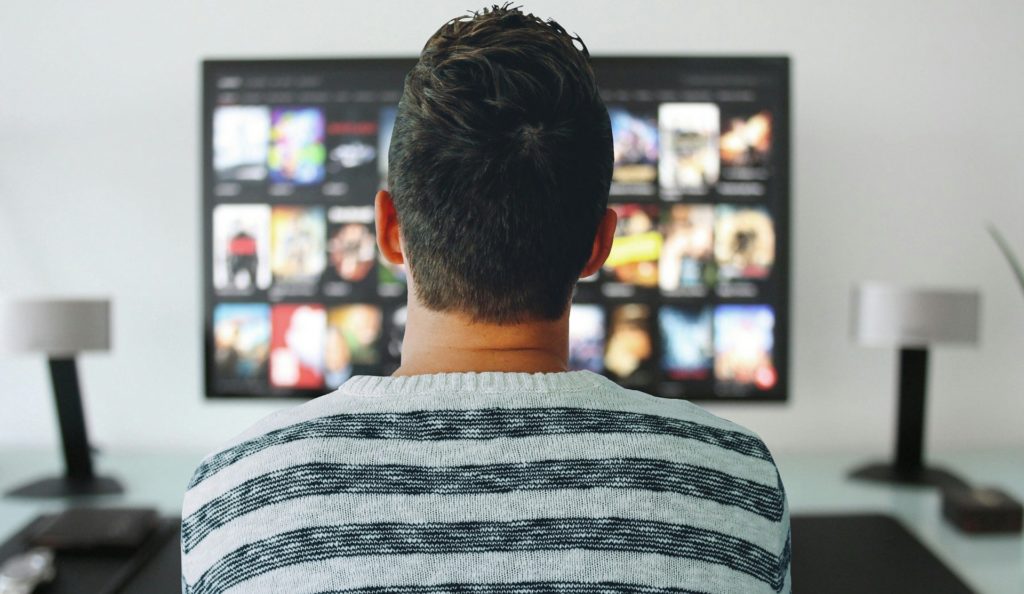9 Ways To Watch TV The Healthy Way
May 22 2019Somewhere in the back of your mind, you’re probably wondering what binge-watching is doing to your body.

Before you reach for the remote, consider these nine rules for avoiding the biggest blunders.
Turn on the actual television
Viewing a show on a TV versus a laptop or tablet has a sneaky upside – it’s easier on eye muscles, explains ophthalmologist Dr Christopher Starr. “A close screen requires near vision, so eye muscles have to work harder to keep images in focus,” he says.
Give your eyes a commercial break
Staring at electronic screens can cause us to blink up to 50 per cent less than usual, leading to dry or irritated eyes and headaches, Dr Starr says. If a small screen is your only option, he says, employ the 20/20/20 rule. “Every 20 minutes, look away from the screen and focus on an object about 20 feet [6 metres] away for 20 seconds. This lets the eye muscles relax, reducing eyestrain.”
Save intense action and thrillers for after you eat
High-energy dramas can get your adrenaline going, and they might make you eat twice as much. US researchers have found that the more distracting the TV show, the more people ate – up to 98 per cent more! Quick camera cuts and loud, startling noises are designed to distract viewers, and the more we’re distracted, the more mindlessly we snack. “Eat protein and fibre at dinner, and drink plenty of fluids during the day, to cut back on grazing while you watch,” advises dietitian Jaclyn London.
Sweat while you binge
If you’re a binge watcher, you’re not alone – about 70 per cent of TV fans are. But watching a string of episodes in one sitting not only means you’re upping the risk of metabolic diseases, but it also cuts into your time to do something more productive, like hit the gym. Get the best of both worlds by doing sets of squats, lunges, push-ups or planks while you catch up on Netflix. Another bonus: a study in the Annals of Behavioral Medicine found that a combination of audio and visual stimuli makes intense exercise seem easier both physically and mentally. In other words, you’ll be less apt to throw in the towel early. It also increases feelings of positivity.
Limit your hours
Too much tube time is linked to weight gain, but it may also up your risk of type 2 diabetes and kidney disease. After surveying more than 8,900 adults, Australian researchers found that, for every extra hour of TV per day, the risk of dying from diabetes or respiratory, cognitive and kidney diseases increased by 12 per cent. “Sitting leads to reduced muscle activity, particularly in the lower limbs, and decreased blood circulation,” says Professor David Dunstan, PhD, head of the Physical Activity Laboratory at the Baker Heart and Diabetes Institute in Melbourne. “Over time, the body may become less able to regulate metabolic processes, like utilising blood glucose,” he warns.
Dim the screen
Spending extended periods in front of a digital screen may cause “Netflix face” – brown spots or sagging and wrinkling of the skin under the eyes and around the mouth due to the light wavelengths emitted, says dermatologist Dr Shari Marchbein. “This may lead to DNA damage, which triggers inflammation, breakdown of healthy collagen and elastin, and hyper-pigmentation.”
Ease up on the news
If your TV is constantly set to a 24-hour news channel, it’s time for a change. An American Psychological Association study found that 59 per cent of viewers were stressed out by at least one issue on the news. Constant worrying boosts stress hormones, which can trigger anxiety or depression, mood changes, upset stomach, a dip in sex drive, headache, weight gain and sleep disruption.
Add some nostalgia
What you watch can have an impact on your health too. The best shows for your brain? Ones you’ve seen plenty of times before. Rewatching favourite shows can restore willpower. Researchers believe this is because you don’t have to devote as much mental energy to something you’ve seen already, so your brain can replenish your self-control supply. Plus, feeling nostalgic has been shown to boost happiness, so add some classics to the mix.
Stand up
No, not for the whole episode. But if you don’t feel like breaking out the dumbbells, try standing and stretching during commercials – or a few times during the show if it’s ad-free streaming. Columbia University researchers monitored inactivity in 7,985 adults for a week and found that those who were immobile for an hour or two had higher mortality rates than those who sat in bouts of under 30 minutes each.
—
Source from Prevention.
